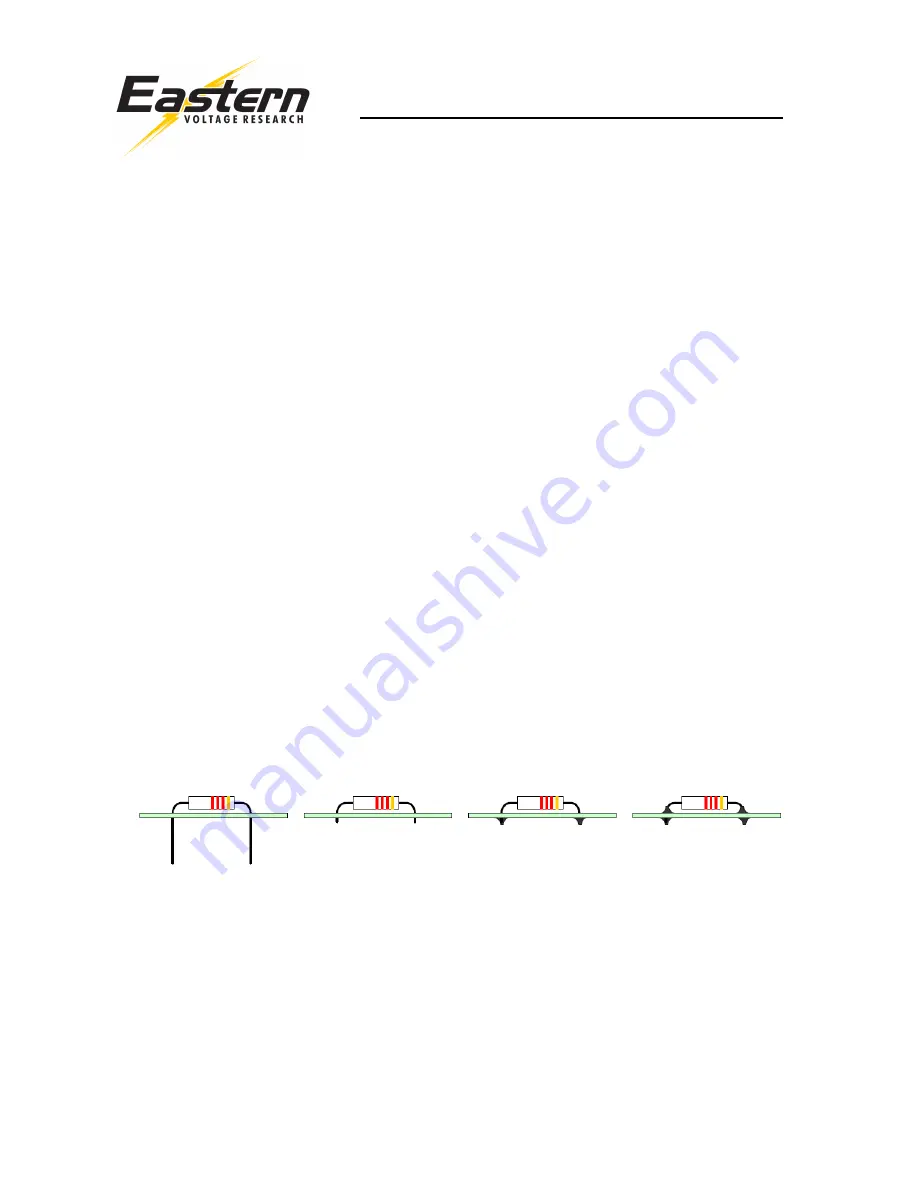
Advanced RGB LED 1.0 Kit
December 2013, Rev 1
− 4 −
http://www.EasternVoltageResearch.com
Advanced RGB LED 1.0 Kit
Kit Building Tips
A good soldering technique is key! Let your soldering iron tip gently heat both the wires
and pads simultaneously. Apply solder to the wire and the pad when the pad is hot
enough to melt the solder. The finished joint should appear like a small shiny drop of
water on paper, somewhat soaked in. If the pads have not heated up sufficiently, melted
solder (heated only by the soldering iron itself) will form a cold solder joint and will not
conduct properly. These cold joints appear as dull beads of solder, and can be easily
fixed by applying additional heat to the pad and wire. All components, unless otherwise
noted, should be mounted on the top side of the board. This is the side with the
silkscreen printing.
When installing components, the component is placed flat to the board and the leads are
bent on the backside of the board to prevent the part from falling out before soldering.
The part is then soldered securely to the board, and the remaining lead length is clipped
off. It is also extremely important to place the components as close to the board as
possible. This is necessary for proper operation over the wide frequency range of the
various kits we provide. Also be sure that component lead lengths are always as short as
possible. This will avoid adding any stray capacitances or inductances that can be
detrimental to circuit operation.
An alternative approach (which is actually the one I use) is to install the component into
the board and then apply a piece of masking tape on the topside to the hold the
component in place temporarily. The leads on the backside of the board are then trimmed
leaving about 0.10” lead protruding through the backside of the board, and then soldered
from the backside. You can then remove the masking tape, and finally apply a small
amount of solder on the top to complete the joint on both sides. This is shown in the
figure below.


















